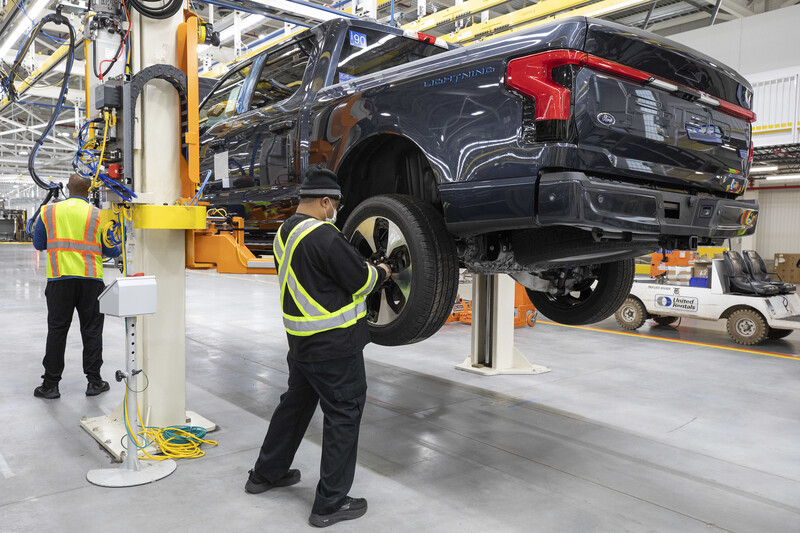Electric vehicles might be great for bringing emissions down, but there’s growing concern among autoworkers that they might not be great for people who make cars for a living.
Driving the news: United Auto Workers President Shawn Fain, who is leading the first-ever US strike against all three of GM, Ford, and Stellantis (formerly Chrysler), has highlighted the possible dangers for workers presented by the EV transition.
- “We will not let the EV industry be built on the backs of workers making poverty wages,” Fain wrote in a recent op-ed, adding that “the early signs of the industry are worrying.”
Why it’s happening: EVs have far fewer parts and require far fewer workers to build than gas-powered vehicles, raising the prospect of layoffs and pay cuts for autoworkers as EVs become more popular.
- Ford’s CEO has estimated that it takes around 40% fewer workers to make an EV than a gas-powered car.
Why it matters: The rise of EVs—encouraged by heavy government subsidies—could make auto manufacturing jobs scarce, narrowing what had been traditionally a reliable path to the middle class.
- Autoworker unions—the UAW in the US and Unifor in Canada—are negotiating aggressively with the Big Three automakers against the backdrop of this EV transition.
- For that reason, job security for workers building gas-powered vehicles is likely to be one of their key demands.
Yes, but: The legacy automakers say they can’t afford to ramp up pay and benefits for workers while facing stiff competition from Tesla, which is not unionized and is already making EVs at a lower cost than the Big Three.
